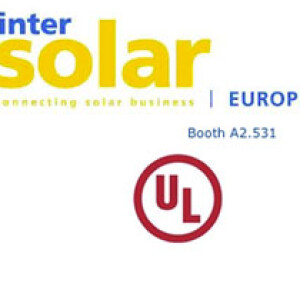
03.05.2013
UL evaluates Potential Induced Degradation (PID) of PV Modules
Utility Scale PV Power Plants operate at high system voltages ranging from 500 Vdc to 1000 Vdc. It has been observed that this high potential can lead to or accelerate module degradation through multiple factors. Such factors may result in conditions such as potential induced degradation, polarization, electrolytic corrosion, and electrochemical corrosion. These factors are prevalent in wet or damp environments, such as morning dew or rain, as well as in those subject to module soiling with conductive, acidic, caustic, or ionic materials. When field installed, crystalline silicon modules may degrade in positive as well as negative polarity which is dependent on cell construction, module production processes and materials and overall design.
PV module manufacturers have found the data from this test beneficial in their reliability efforts for warranty and other financial analysis purposes. Proving that a PV module is not susceptible to PID by conducting a scientifically proven and repeatable test at a third party lab improves bankability and credibility.
PV module manufacturers have found the data from this test beneficial in their reliability efforts for warranty and other financial analysis purposes. Proving that a PV module is not susceptible to PID by conducting a scientifically proven and repeatable test at a third party lab improves bankability and credibility.
Other news from Ul

Meet UL at Intersolar, Munich, Hall A2-Stand 531
Find UL at Intersolar, from 19 till 21 june 2013
29.04.2013

UL: The Safety Mark all around the world
02.08.2012





